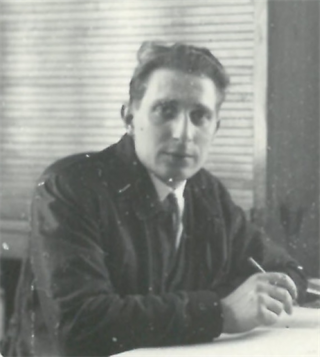Dr. Franz Josef Krusche

Personalia
Born:
Died:
Profession:
Persecution:
Detention and remand 13.07.1939 - 28.12.1939, imprisonment 28.12.1939 - 13.01.1941
Memberships
Curriculum Vitae
Franz Josef Krusche attended the University of World Trade in Vienna after graduating from high school, where he joined the Pflug student fraternity in 1923. He graduated in 1930 and was awarded a doctorate in commercial sciences (Dr. rer. merc.) in July 1935. He initially works as an accountant at the Gföhl dairy and then joins the General Directorate of the Austrian Federal Railways [ÖBB]. From 1935 to 1937 he was a commercial employee at the Alpinen Montan-Gesellschaft. In November 1937, he returns to the Federal Railways as the department head in charge. He is an ordinary member of the VF.
After the Anschluss, Franz Josef Krusche is dismissed from his position at the end of April 1938 "because he was considered a confidant of the former Minister of Trade of the system government, Fritz Stockinger." Stockinger was Federal Minister for Trade and Transport from 1933-1936 and also President of the ÖBB from 1936-1938. He was able to flee abroad in time to avoid arrest. Franz Josef Krusche joined Stockinger's wife's company as managing director at the beginning of March 1939. He maintains personal contact with Stockinger, who is in Paris at the time, where he also visits him once in December 1938. Franz Josef Krusche hoped that he would give him a new lease of life, which he had lost because of him. On Stockinger's behalf, Franz Josef Krusche also traveled to Budapest in January and June 1939. From the beginning of July 1939, the Stapo headquarters in Vienna became aware of these contacts because he was "presumably in active correspondence with Stockinger and was also involved in intelligence work for an emigrant group in Paris." This coded correspondence, which provided information about the situation in Austria, was found during a house search and deciphered. It leads to his arrest by the Gestapo on July 13, 1939. On December 28, 1939, the Vienna District Court, acting as a special court, sentenced Franz Josef Krusche "for an offence under § 1 of the Law against Insidious Attacks on the State and Party and for the Protection of Party Uniforms of 20.12.1934, RGBI. I, page 1269, to eighteen (18) months in prison" with credit for the period of pre-trial detention The "repetition of the punishable act" is seen as aggravating the sentence because "the accused had to expect that his communications would be used as a weapon in the fight against the Reich by the emigrants living in Paris." Subsequently, on November 25, 1940, the Vienna Regional Court also revoked his diploma and doctorate, citing § 4 of the law on the use of academic degrees of June 7, 1939, "if the holder has proven himself unworthy of holding an academic degree through his subsequent conduct", which is given by the conviction. The revocation of this decision is rejected by the Reich Ministry of Science and National Education in Berlin on August 29, 1941. The letter from the rector of the Vienna University of Economics and Business on the decision of the professorial college on July 28, 1945, that Franz Josef Krusche's doctorate would be restored, could not be delivered at the time because the address was unknown; the letter remained unopened in the Vienna University of Economics and Business archives until April 17, 2015. After his arrest on 13 January 1941, Franz Josef Krusche did not return to his apartment in Vienna, but moved to Innsbruck via Pinzgau.
After the war, he worked in the Federal Ministries of the Interior and Transport, ultimately with the rank of Ministerial Councillor. He died in Klosterneuburg in 1967 and found his final resting place in Altlengbach, Lower Austria.
Places
Residence:
Citations
Krause, Peter/Reinelt, Herbert/Schmitt, Helmut (2020): Farbe tragen, Farbe bekennen. Katholische Korporierte in Widerstand und Verfolgung. Teil 2. Kuhl, Manfred (ÖVfStG, Wien) S. 190/191.
